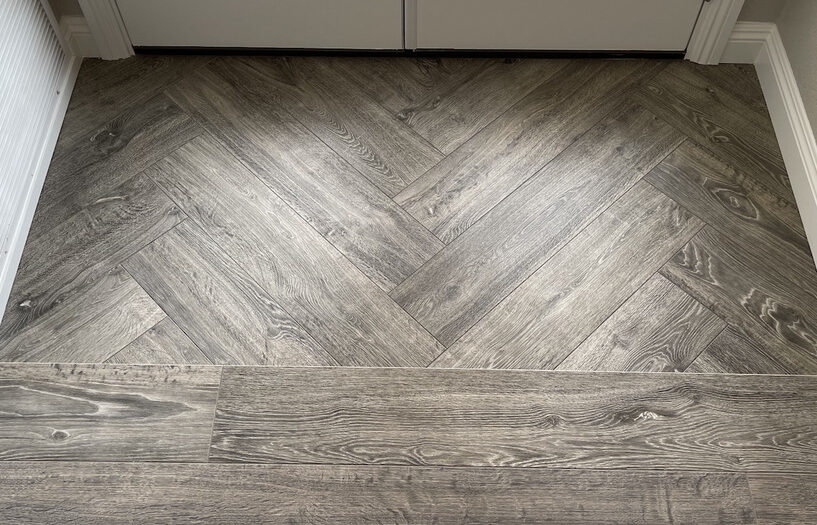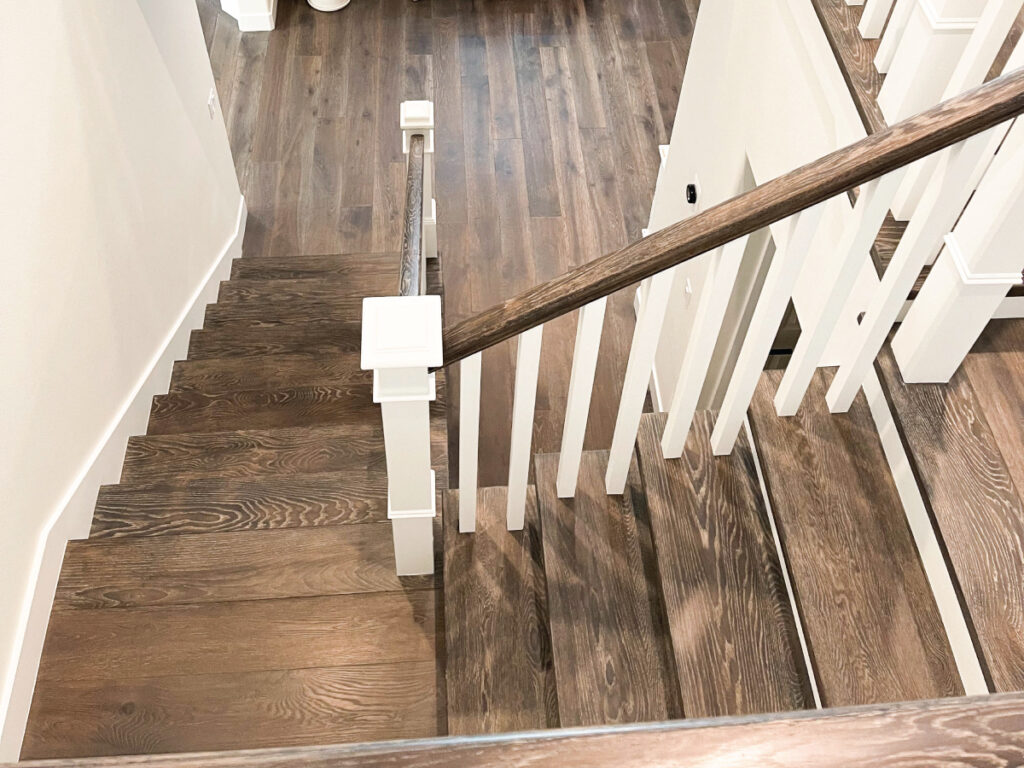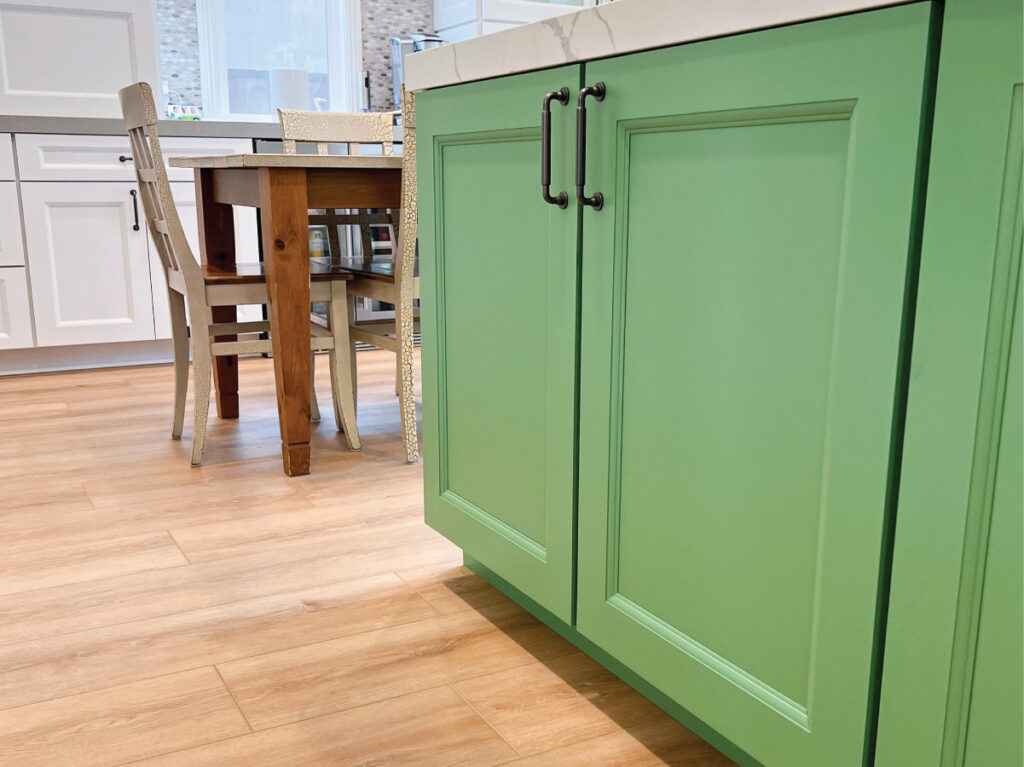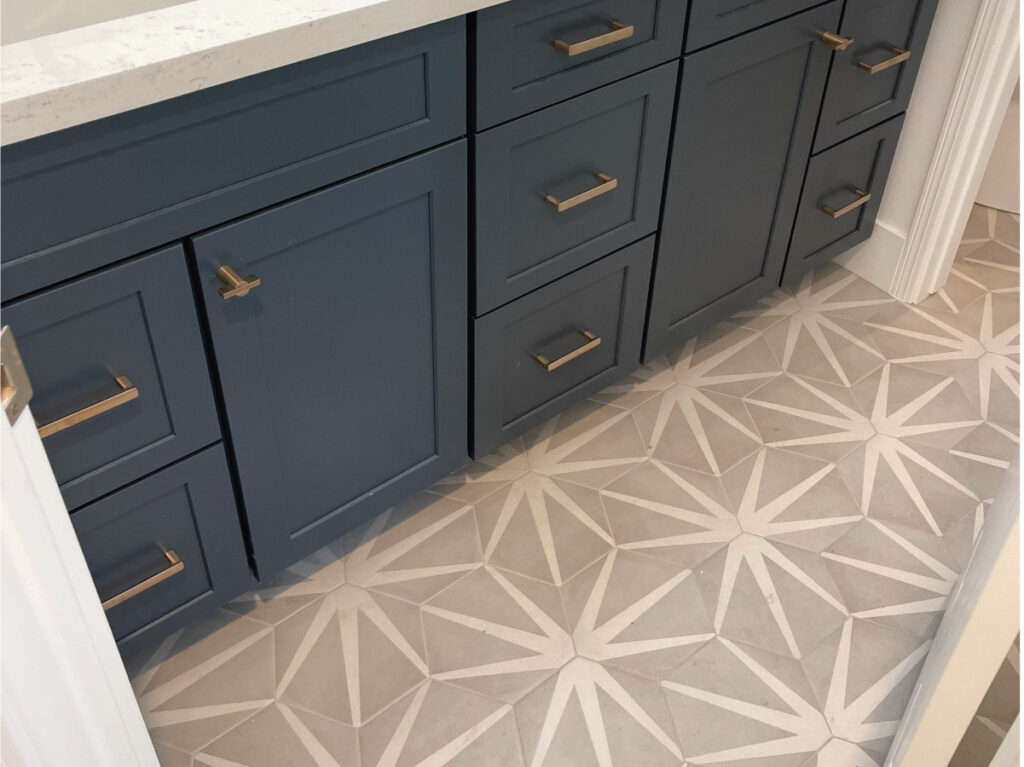When buying new flooring for your home, both the flooring material and the flooring contractor are important. But if you had to choose one as more important, the contractor wins every time. Good materials can’t compensate for bad installation, but good installation can elevate even basic materials.
So, use this handy checklist for hiring a flooring contractor.
Why the Flooring Contractor Matters
A great contractor makes even average flooring look amazing, but a bad contractor ruins even the best flooring.
Installation Impacts Durability
No matter how expensive or high-end the flooring you buy, a poor installation job with uneven subfloors, bad cuts, or wrong adhesives results in a waste of money. Instead of years of beauty, you get:
- premature wear and tear
- buckling or gapping
- moisture issues
- voided manufacturer warranties
Local Contractors Know What Works in Orange County
A skilled, local flooring contractor understands which materials are best suited for each space in the house. Different rooms present different challenges. For example, bathrooms need moisture resistance, and high-traffic areas require durability. Entry areas must take on everything that comes through the door.
An experienced contractor often catches issues homeowners miss, saving money and headaches down the line.
Precision and Craftsmanship Matter
Even luxury flooring looks cheap if transitions are sloppy, planks aren’t staggered correctly, or seams show. A quality installer brings the craftsmanship needed for a clean, professional look.
A Quality Flooring Contractor Keeps an Eye on the Details
An experienced contractor develops an eye for the smallest details. These contractors know that much of the success of a floor comes before the first plank or tile is laid. They know what flooring requires acclimation and how to acclimate properly. When it comes time to install, they know how to:
- test and level subfloors
- handle moisture barriers
- trim around obstacles cleanly
- dispose of old flooring properly
Flooring Contractor Checklist
Use this checklist when evaluating flooring contractors. Download and print this version before you talk to contractors.
Credentials & Verification
- Licensed in your state or county for flooring installation.
- Bonded and insured (liability and workers’ compensation).
- Provides a written contract with clear terms.
Experience & Expertise
- Specializes in the type of flooring you’re installing (e.g., tile, hardwood, LVP).
- Has at least 3-5 years of installation experience in residential.
- Knowledgeable about subfloor prep, underlayment, and moisture barriers.
- Can advise on material compatibility for your space (e.g., pets, climate, foot traffic).
Past Work & Reputation
- Shares before-and-after photos or a portfolio of completed jobs.
- Has positive online reviews (Google, Yelp, Houzz, etc.).
- Can provides at least 2-3 references you can actually call.
- No unresolved Better Business Bureau (BBB) complaints.
Estimates & Transparency
- Provides a written estimate, including labor, materials, prep, cleanup, and disposal.
- Breaks down pricing for add-ons, such as stairs, transitions, baseboards, or floor leveling.
- Offers a realistic timeline and start date.
- Answers questions clearly and doesn’t pressure you to rush a decision
Jobsite Conduct & Cleanup
- Cleans up daily and protects other parts of your home.
- Uses proper tools and follows manufacturer installation guidelines.
- Provides a warranty on workmanship (typically 1-2 years minimum).
Inspired Remodels for Residential Flooring
When evaluating flooring contractors, be sure to talk to Inspired Remodels for your Orange County flooring needs.
You will deal with a local company that checks all the boxes. Schedule an estimate today.









